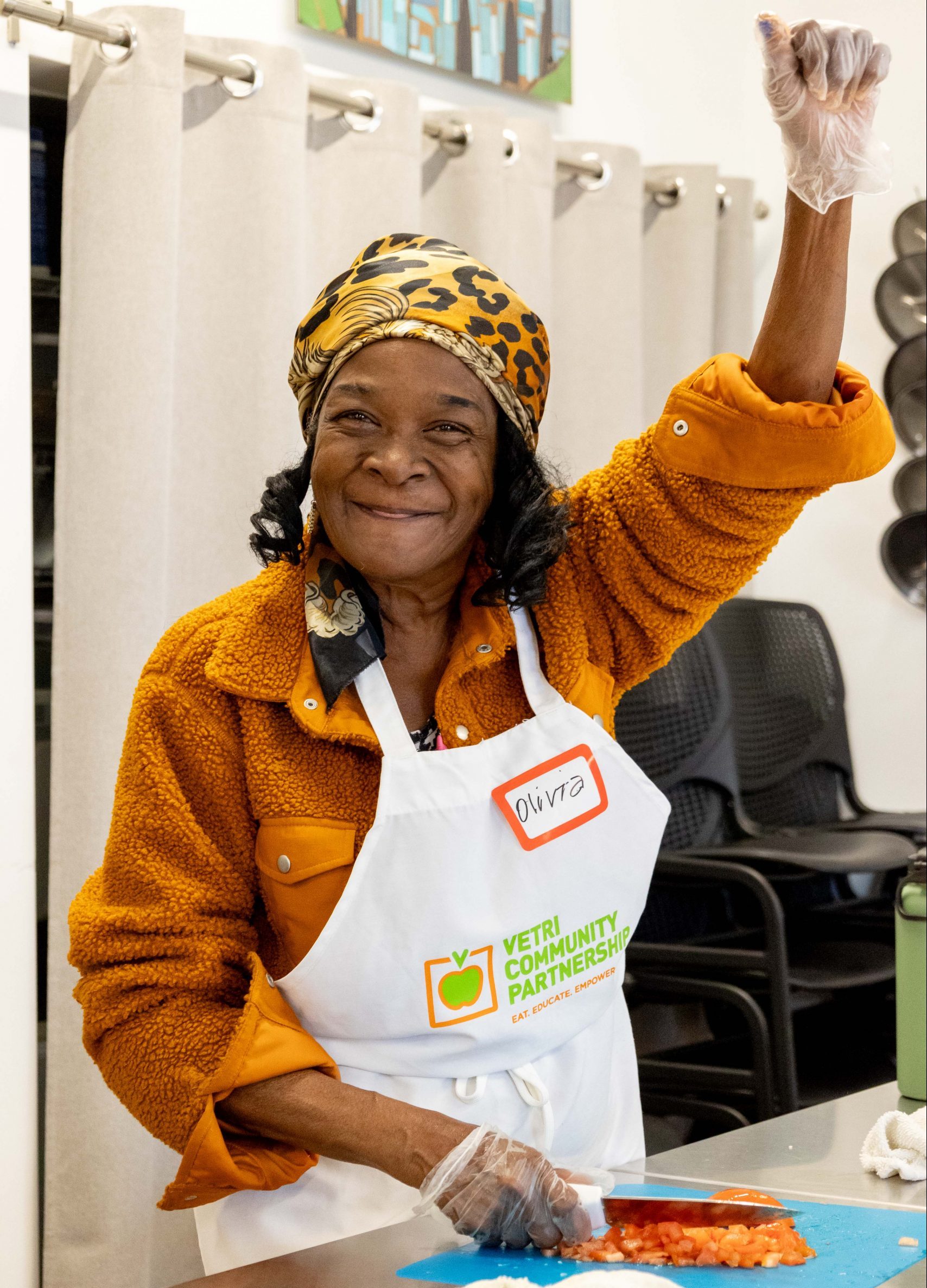A recent study published in the Journal of the Academy of Nutrition and Dietetics came to the conclusion that fewer than a quarter of patients who had been hospitalized or been in a period of care for a cardiovascular-related incident received dietary counseling from their healthcare provider. This is an alarming statistic, but overall, not surprising.
Doctors typically receive an average of 11 hours of nutrition education during their training, though it varies from school to school. At Vetri Community Partnership, we recognized this gap in education and developed our Culinary Medicine program to provide the support and education needed to help physicians better serve their patients with nutrition education and dietary counseling.

With Culinary Medicine, Vetri Community Partnership offers our expertise in community nutrition education through cooking to patients and doctors to ensure that they and their patients have the knowledge and the tools to meet their health goals.
Research shows that medical students who receive training in culinary medicine exhibit greater confidence in counseling patients on dietary changes, have improved knowledge of nutrition-related diseases, and are more likely to incorporate nutrition into clinical practice. Implementing culinary medicine education in medical schools has been associated with better patient outcomes, including improved dietary adherence and management of chronic conditions. By integrating culinary medicine into the medical curriculum, we are equipping future physicians with essential skills to address the nutritional aspects of patient care, ultimately contributing to better health outcomes and overall wellness.
In Philadelphia, we are proud to collaborate with top medical schools like Perelman School of Medicine and Sidney Kimmel Medical College where we are supporting medical students in the practical application of nutrition education, translating theoretical knowledge into tangible actions. These students participate in hands-on cooking workshops paired with case studies that provide examples on how to better counsel their future patients with nutrition education. The education these medical students receive through our Culinary Medicine program provides an additional 16-18 hours of foundational skills and knowledge to make them doctors that are more knowledgeable and confident in speaking with their patients about nutrition. In fact, a recent survey of medical students who took Culinary Medicine showed that 71% of respondents agreed that classroom discussions increase the degree to which students plan to direct patients to available resources to support choosing a nutritious diet.

For patients, Vetri Community Partnership also offers Culinary Medicine programs in the form of cooking classes focused specifically on health needs and populations, including cardiac health. In these programs, we emphasize nutrition addition, the practice of adding nourishing foods like fruit, vegetables, and whole grains to your diet. With nutrition addition, individuals can optimize their nutrient intake, support overall well-being, and enjoy a varied and satisfying diet without feeling deprived or restricted.
Doctors are welcome to refer their patients to these classes, which offer helpful, practical guidance in preparing meals that are delicious while supporting their health goals. When individuals feel supported, empowered, and confident in their efforts to make nutritious choices, they are more likely to persist, leading to sustainable long-term change in dietary behaviors.
Vetri Community Partnership stands firmly in our belief that health and nutrition is more than simply giving people “healthy” food or prescribing medication. For people to take action and to eat food that nourishes their bodies, they need a holistic approach that includes medical interventions, preventative care, and the education on how to prepare nutritious foods that help support their health needs. It is imperative that people managing cardiovascular disease and the physicians who treat them have resources like Vetri Community Partnership in order to improve community health outcomes.
Whether you’re a doctor, medical student, or a patient, you belong at Vetri Community Partnership.
